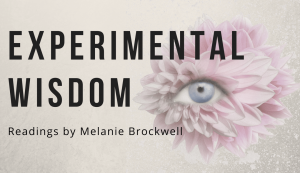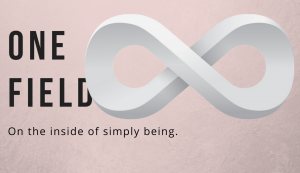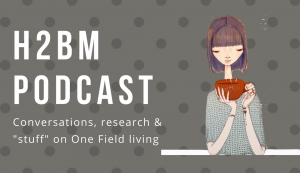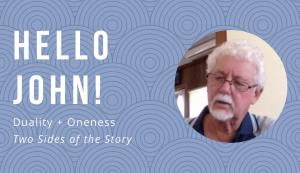
Consciousness of Choice
Although proponents of Advaita may conduct experiments, it is the wonder and glory of experimentation itself they have in mind. Choice is not used to bring about particular outcomes, for this would be manipulation of what is not into being; something a lived experience of Advaita cannot assume since the only ‘transition’ to be made is from not experiencing mokSha to a lived experience of mokSha.
If we do not choose happiness, then what is the point of choice in Advaita?
Such an approach to life does not preclude preference for one ice-cream flavour over another. Indeed the world is full of things we enjoy, conversations we remember fondly, and places we do not visit. It is the choice process itself that differs.
In Advaita, choice is not between competing outcomes or desires. In Advaita the outcomes are part of a purpose we do not control; a reason we may not be privy to. Choice is a consciousness. The same can be said for desire. Since there is no attachment to discomfort as “bad” or pleasure as “good”, the world is organised by principles that allow this and all moments to be Brahman.
So a headache is not immediately put into the “what are we going to do to fix this problem?” pile. A headache is part of an an expression of Brahman. An expression that does not require something to be “wrong” in order to take action, and does not require something to be “positive” in order to recognise it’s sacredness. Although making choices can be difficult to explain, since the preference is for curiosity unbridled by conventional wisdom, choice itself is a simple matter of intuitive-logic.
The Experience as an Outcome
When life is no longer right-wrong, good-bad, better-worse, then some other barometer of preference must be in play. We must find new ways to navigate the everyday. Ways that do not assume the sarvagata of Brahman is available to all it’s expressions.
This is what it means to be in, but not of the world. This is the lived experience of Oneness, of mokSha in the moment!
With no preference for riches or niceties, the Advaitist is committed to being present. It is not always easy to understand how this presence is achieved when we are so used to focusing on the outcome versus the experience. In Advaita, the outcome is the experience. Only in duality can they be separated.
In duality, being present is an outcome: Our life must look a certain way, and we measure our success (of achieving presence) against cultural pre-conceptions. For example, in the outcome version of “being present” one does not anger or despair, one does not know pain and suffering, and one does not acquire wealth as a function of career goals. This is the image of being present. It is often a picture of clear skin, taut body, regular meditation and dedication to spiritual practice. All you need do is look at the images used in the mind-body-spirit industry’s advertising to see our cultural pre-conceptions for “being present” as an outcome.
MokSha in the Moment
In Advaita, the experience of being present is not an outcome that looks a particular way, or has rules around how presence is maintained. In the experience, we are free to know this moment simultaneously as Jiva and Brahman; an equal and essential aspect of All That Is; trustworthy and already on purpose. Thus is the experience of Advaita.
In mokSha, we do not learn to avoid pitfalls or attract abundance. In mokSha we are present to the purpose of this moment trusting it is Brahman manifest; trusting it is one of many experiences of the whole.
Advaita has identified these things as useful to being present. They anchor our experience not to an immutable truth that assures us there is a way to predict and control our lives, but instead inviting us into a lived experience of the vedantic mokSha. So rather than seeing building blocks that must be arranged, aligned and maintained, we see everything as sacred.
Advaita, Oneness & The Medicine Wheel
This surrender to the innate harmony and order of life is not limited to Advaita. Oneness and even the Native American Medicine Wheel speak of life in this same way. An inseparable wholeness expressed as our experience of life.
Rather than particles that must sustain their own purity, each aspect of Brahman is Brahman. And instead of believing we must somehow keep connected to Brahman or each other, Advaita assumes we are already interconnected and inseparable from the whole. In this way, nothing can be not Brahman, and everything must be of Brahman. So there is no Brahman quality inside us to be tapped into or magnified. While our experience may well feel disconnected or unholy, our reality is Brahman. Perhaps it is helpful to remember that our feelings are made meaningful through the stories we tell.
Trust, Knowledge & Experience
Whatever helps us experience svatmasvarupatva – our true nature – as Brahman for ourselves, is welcome. In other words, realising a truth, and living this wisdom are two different things. While we may know and trust that we are who we are as Brahman, we may still feel unconvinced we are having the experience. We may know that the vedantic mokSha is inherent, and that no amount of practice can change that, but we may continue to seek ways to experience the truth of what we know.
In this case what can change is our understanding, which is why we have these discussions – to understand the difference between trust, knowledge and experience.
For example, if I walk into a room expecting chairs and I see cushions, my understanding makes all the difference. Do I ponder ‘expectation’ as a means of self-exploration? Or do I admonish myself for having an expectation in the first place? Am I open to the experience of ‘reaction’ as part of my svatmasvarupatva? Or am I making lists of ways to avoid ‘negative’ feelings like these in the future? Either way I am Brahman. Either way I am interconnected and on purpose. The question is, how can I understand my experience as intrinsically infinite and limitless?
Consider This
We can have the same response to an unexpected situation and be present to different aspects of the story. We can focus on the experience as the outcome, or we can focus on the outcome as a consequence. We can focus on the right-wrong story, or we can focus on what it would mean if we assumed it was sacred. And we can choose to see ourselves rewarded-and-punished by life, or we can allow life to be Brahman.
Wherever we take this moment of consciousness, the only choice is our version of what is. After all, there is no escaping, improving or controlling the experience of Advaita.








